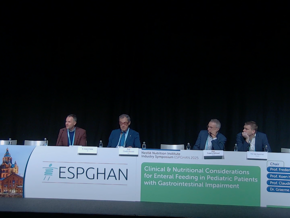Green tea extracts show promise for people with metabolic syndrome
Metabolic syndrome (MetS) is a condition characterized by central obesity, hypertension, and disturbed glucose and insulin metabolism. The syndrome has been linked to increased risks of both type 2 diabetes and cardiovascular diseases. Researchers from Oklahoma State University and the University of Oklahoma noted that MetS actively contributes to obesity and diabetes and is also “associated with elevated oxidative stress and impaired antioxidant status”.
“To our knowledge, this is the first clinical investigation of the effects of green tea supplementation in endogenous antioxidant markers in obese participants with the metabolic syndrome,” wrote researchers from Oklahoma State University and the University of Oklahoma. “Glutathione is an essential constituent of the endogenous antioxidant defense system,” they explained. “Reduced glutathione acts as the electron donor to the enzyme GPx that efficiently scavenges hydrogen peroxide, thus preventing cellular oxidative damage. Reduced glutathione is primarily synthesized in the liver; and its deficiency has been implicated in aging, cardiovascular disease, and cancer.”
Tea benefits
The study adds to an ever-growing body of science supporting the potential benefits of green tea and its constituents, most notably EGCG (epigallocatechin gallate). To date, green tea has been linked to a reduced risk of Alzheimer's and certain cancers, improved cardiovascular and oral health, as well as benefits in weight management.
Green tea contains between 30 and 40 per cent of water-extractable polyphenols, while black tea (green tea that has been oxidized by fermentation) contains between 3 and 10 per cent. Oolong tea is semi-fermented tea and is somewhere between green and black tea. The four primary polyphenols found in fresh tealeaves are epigallocatechin gallate (EGCG), epigallocatechin (EGC), epicatechin gallate (ECG), and epicatechin (EC).
The new study follows earlier work from the same research group, which indicated that green tea may reduce levels of a protein called amyloid alpha linked to heart disease.
Study details
The Oklahoma-based scientists recruited 35 obese people with MetS and randomly assigned them to one of three groups: The first group received four cups of green tea per day; the second group received four cups of water per day plus two capsules containing green tea extracts; and the third group received four cups of water per day.
After eight weeks, the researchers observed a significant increase in plasma antioxidant capacity in both tea groups, compared with control, as well as the increases in glutathione levels. However, no changed were observed in in blood carotenoid and tocopherol levels, nor in the activities of glutathione peroxidase and catalase.
“Significant effects were observed in both green tea beverage and extract supplementation, when compared with the control group, in elevating whole blood glutathione concentrations and plasma antioxidant capacity in obese participants with the metabolic syndrome,” wrote the researchers.
“In addition, plasma iron was significantly reduced when compared with the baseline in the green tea extract group.
“Thus, our study provides novel evidence on the role of green tea catechins in increasing endogenous antioxidant capacity by selectively modulating endogenous antioxidant markers in the metabolic syndrome,” they concluded.
Source: Nutrition Research March 2013, Volume 33, Issue 3, Pages 180–187
“Green tea supplementation increases glutathione and plasma antioxidant capacity in adults with the metabolic syndrome”
Authors: Basu A, Betts NM, Mulugeta A, Tong C, Newman E, Lyons TJ.
Links : http://www.nutraingredients-usa.com/Research/Green-tea-extracts-show-promise-for-people-with-metabolic-syndrome
“The future depends on what we do in the present.”
If you liked this post you may also like



